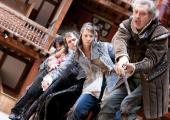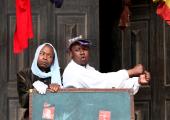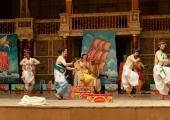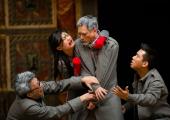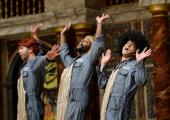Globe to Globe: King John, Shakespeare's Globe

Armenia's version of Shakespeare's European war play hits every note - and more
You might have wondered if, when Armenia was offered King John as part of the Globe to Globe season, they felt they’d drawn the short straw. Not a bit of it. Shakespeare’s early history play, the action of which pre-dates those for which he is better known by a century, may be rarely performed, but here, in what I suspect is a judiciously trimmed version, it brings out so much that genuinely crosses international lines, speaking Shakespeare’s story with the local accent of the producing nation.


